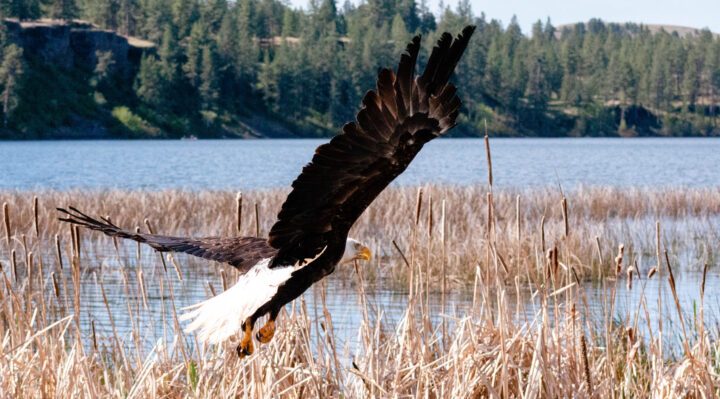
OLYMPIA, Wash. – After the 2024 Draft Periodic Status Review, the Washington Department of Fish and Wildlife (WDFW) recommends both the bald eagle and peregrine falcon remain successfully recovered.
Both species were removed from Washington’s list of endangered species in 2016 due to population recovery across the country and in Washington. WDFW projects both species could retain that status through 2024.
“Careful management and protection has enabled recovery of both of these species,” said Taylor Cotten, WDFW conservation assessment section manager. “To have evidence now that affirms the 2016 decision to delist these species in Washington – this is absolutely a conservation success story. Washington now has robust populations of bald eagles and peregrine falcons, and both species will continue to be an important and thriving part of our state’s natural diversity for the foreseeable future.”
Now, the WDFW is requesting public comment on the draft status. All members of the public are encouraged to share their perspectives. Your submission can be written or through email. For more information, visit the WDFW website.
After reviewing all public comments, WDFW will finalize their reviews and brief the Commission on the recommendations.
Under the Washington Administrative Code (WAC), peregrine falcons and bald eagles are classified as “protected wildlife.” Both are also protected under the federal Migratory Bird Treaty Act, while Bald eagles are federally protected under the Bald and Golden Eagle Protection Act.
“WDFW regularly analyzes and reviews information to inform status and classification recommendations for species listed as endangered, threatened, or sensitive in Washington. WDFW is also required to conduct a status review five years after removing a species from Washington’s list of endangered, threatened, or sensitive species to confirm that the species is still meeting recovery objectives. More information is available on WDFW’s At-Risk Species webpage,” WDFW said.



